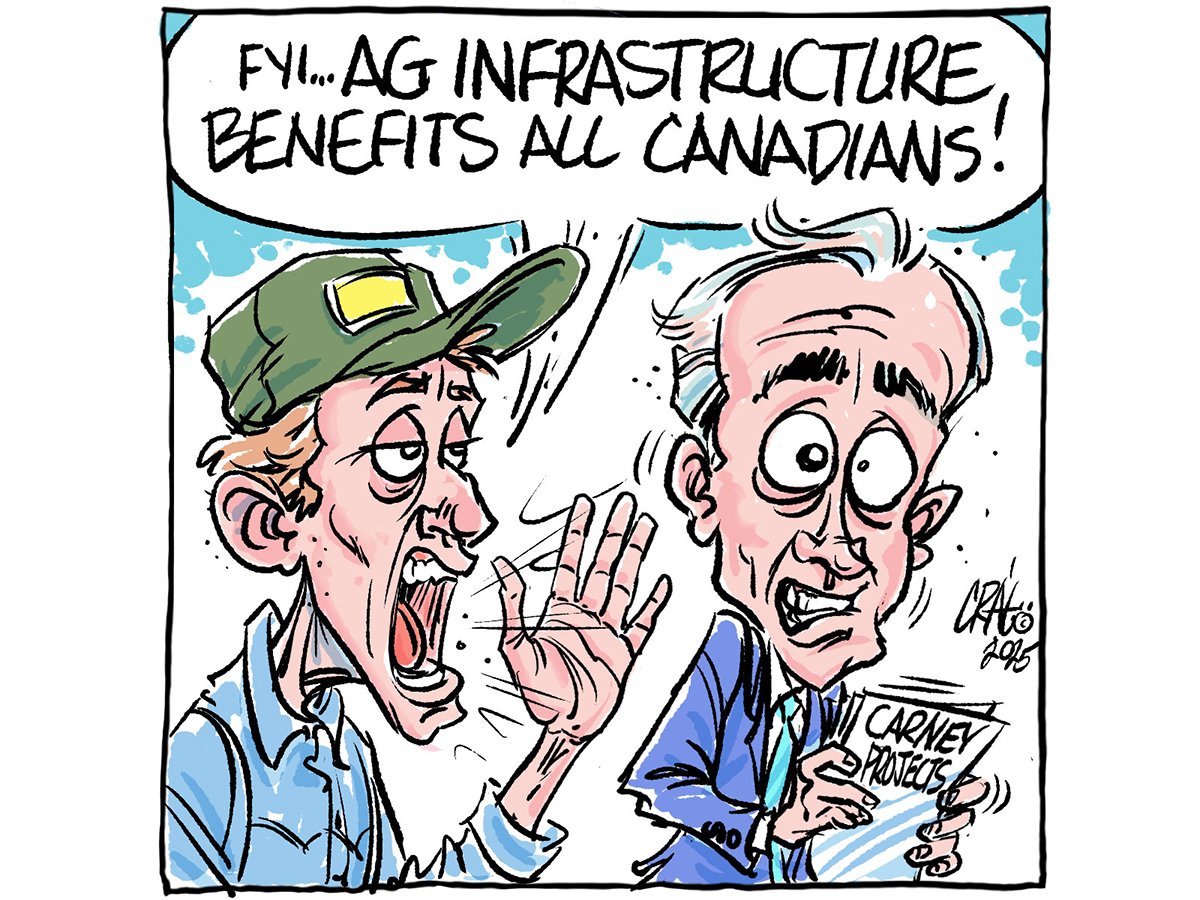Development in Canada can be an incredibly tough slog.
The tangled web of regulations caused by multiple levels of government involved in approval processes for new projects often leads to multi-year delays and inflated costs.
Environmental assessments are commonly drawn out, and court challenges by environmental groups and First Nations cause legal uncertainty for companies that want to build in Canada.
Read Also

Budget seen as fairly solid, but worrying cracks appear
The reaction from the agriculture industry to prime minister Mark Carney’s first budget handed down November 4th has been largely positive.
A primary plank of prime minister Mark Carney’s election platform was to make Canada more competitive and to drive economic growth by untangling this red tape.
We are starting to have a better picture of how he intends to do this.
The first series of projects were recently referred to the Major Projects Office (MPO).
This office was formed in August, and the prime minister said it was designed to fast-track nation-building projects by streamlining regulatory assessment and approvals and helping to structure financing. The office is to work in close partnership with provinces, territories, Indigenous people and private investors.
Not every province had a project on the initial MPO list, yet responses from the premiers were positive.
Even the premier of Alberta, Danielle Smith, who typically presents herself as someone who would rather eat a handful of gravel than say a positive word about a federal Liberal government, seems to be on board with Carney’s approach.
This is likely because the MPO list is not the only way Carney’s government is working to bolster economic development.
For instance, the federal government is in discussions with energy companies and the province of Alberta about scrapping a federal cap on emissions from the oil and gas sector this fall.
Saskatchewan deputy premier and finance minister Jim Reiter issued a statement about the MPO list that said all projects in Canada should go forward, not just the projects selected by politicians in Ottawa.
However, the reason it was Reiter that issued the statement and not Saskatchewan premier Scott Moe was because he was on a trade mission to Asia with federal counterparts, including Kody Blois, parliamentary secretary to Carney.
The prime minister has shown an impressive ability to gather support for his agenda, which is happening at a critical time because Canada’s deteriorating relationship with the United States requires collaborative and decisive action by legislators.
There was little for farmers to get excited about on the MPO initial project list.
The Port of Churchill did make a secondary list of projects that could be referred to the MPO in the future, which was enough to please the Manitoba premier Wab Kinew.
Farm groups were less enthusiastic.
Grain Growers of Canada was not impressed that the MPO did not list the Port of Vancouver and its connecting rail infrastructure as a project of national significance.
Rail and port bottle necks have always been a bane for Canadian farmers, and now is the right time to solve this problem.
However, there are many problems that need attention in Canada, so this is a critical time for farm groups to explain why success in this sector is critical for the country.
It’s important Canadians understand that of the many advantages and strengths this country has, the farming community is among its most important, and that the country as we know it could not exist without a thriving agricultural sector that supports communities from coast to coast.
Karen Briere, Bruce Dyck, Robin Booker, Paul Yanko and Laura Rance collaborate in the writing of Western Producer editorials.















